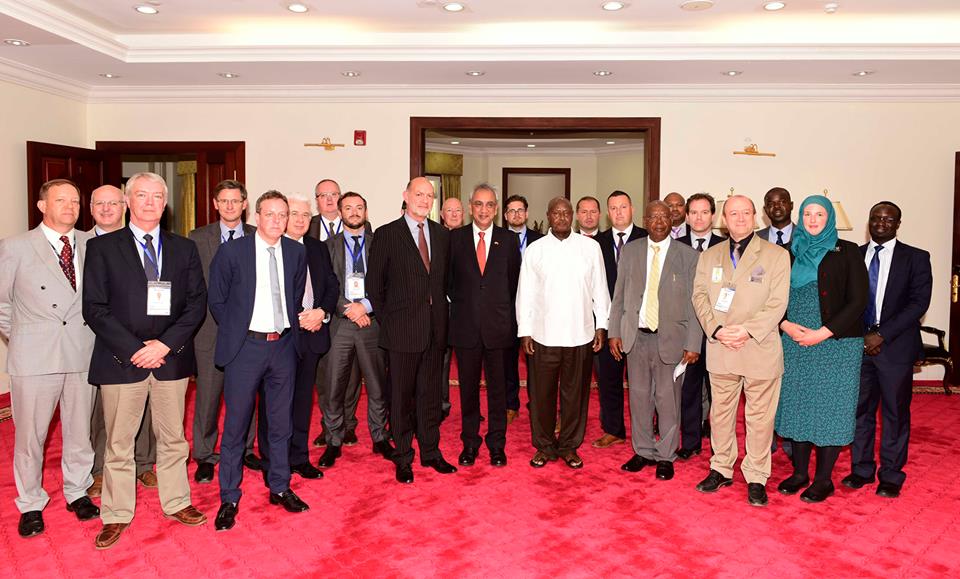The Uganda National Mining Company will manage minerals like gold
Parliament Thursday approved the proposal by Government to create a new company that is going to manage the minerals and mining activities in Uganda.
This came after lawmakers approved Clause 22 of the Mining and Minerals Bill 2021 that sought to establish the Uganda National Mining Company incorporated under the Companies Act, 2012 and would be wholly owned by the State to manage Uganda’s commercial holding and participating interests in mineral agreements.
It should be recalled that on 17th November 2021, Government tabled The Mining and Minerals Bill 2021 for first reading and the bill was sent to Parliament’s Committee on Environment and Natural Resources for scrutiny.
The object of the Mining and Minerals Bill, 2021 is to provide a robust, predictable and transparent legal regime, improve mining and mineral administration and business processes, ensure efficient collection and management of mineral revenues, promote value addition to minerals and increase mineral trade.
However, Parliament rejected a request that sought to give supremacy to the Mining Bill over the Companies Act, 2012, arguing that the new company cannot be held supreme over the Companies Act 2012 which is the principal law on company related matters, specifically on matters dealing with corporate governance and therefore had the proposal deleted from the bill.
However, the Bill is silent on the sources of financing of Uganda National Mining Company and Parliament inserted a clause requiring funding from the National Mining Company to come from the consolidated fund.
Parliament also approved a proposal to have the
Board of Directors of Uganda National Mining Company comprise 9 members and a third of these being women.
The Ministry of Energy in Clause 26 of the Bill sought to grant the Minister powers to instruct the company on matters of management, but this was rejected by Parliament on grounds that it contravenes the autonomy of the Company as it gives the Minister unfettered power over the Company, and instead have the Minister’s powers limited to matters of the Mining policy.
Meanwhile, Parliament rejected the proposal in Clause 27 of the Bill that sought to establish the Mineral Protection Force in order to protect minerals against malpractices and generally enforce the provisions of the Act and other relevant laws.
Instead, legislators concurred with recommendation of the Committee citing that the mandate of the Force is a replica of the Directorate of Geological Surveys and Mines’ mandate and the overlap in mandate is likely to result into disputes and conflicts.
Emmanuel Otaala Chairperson Committee of Environment and Natural Resources noted that the clause does not specify to whom the Force shall report and this can result into impunity of the officer under the Force.
“The Committee further observed that protection forces attached to government agencies and departments have been misused to violate the rights of the persons carrying out businesses in the respective sectors. For instance, on
several occasions, the Forces arbitrarily confiscate people’s land or properties in the process of ensuring compliance to laws,” said Otaala.
However, the proposal enlisted debate among MPs like Keefa Kiwanuka (Kiboga East) who wondered why the mineral sector, just like wildlife and environment protection don’t have their own Force.
“At the moment, we have a mineral protection unit which is parallel to the Ministry of Energy, it doesn’t take instructions from the ministry of energy and they do their own things. But it is possible to create a force within the Ministry of Energy. We have done that for the National Environment Authority (NEMA) and we have done it for Uganda Wildlife Authority,” said Keefa.
Enosi Asiimwe (Kabula County) also backed the proposal saying, “I don’t see anything wrong with the Ministry having its own Force that enforces the requirements of the Act.”
However, Dickson Kateshumbwa (Sheema Municipality) said that wildlife authority and their force are handling protected areas, unlike the mineral sector.
He said, “We have precedents in this country where institutions like URA that have internal enforcement unit and have secondment from security services. Rather than create a parallel force, you can benchmark on the existing institutions and strengthen the internal enforcement of the Ministry.”
Parliament also approved proposal in Clause 29 of the Bill requiring operators in a given area to furnish their respective local governments with report about their activities after every six months.
Otaala said that during scrutiny of the bill, the Committee was informed that in the past, non-involvement of local governments in mining operations has made it difficult for districts, and land owners to assess the expected royalties from within their boundaries.
“In addition, there have been reports of mining companies not allowing local authorities to access and inspect mines. The Committee recommends that a new sub-clause should be inserted und.er clause 29 to provide that local governments shall receive reports and plans of the companies operating in their jurisdiction every six months,” said Otaala.





